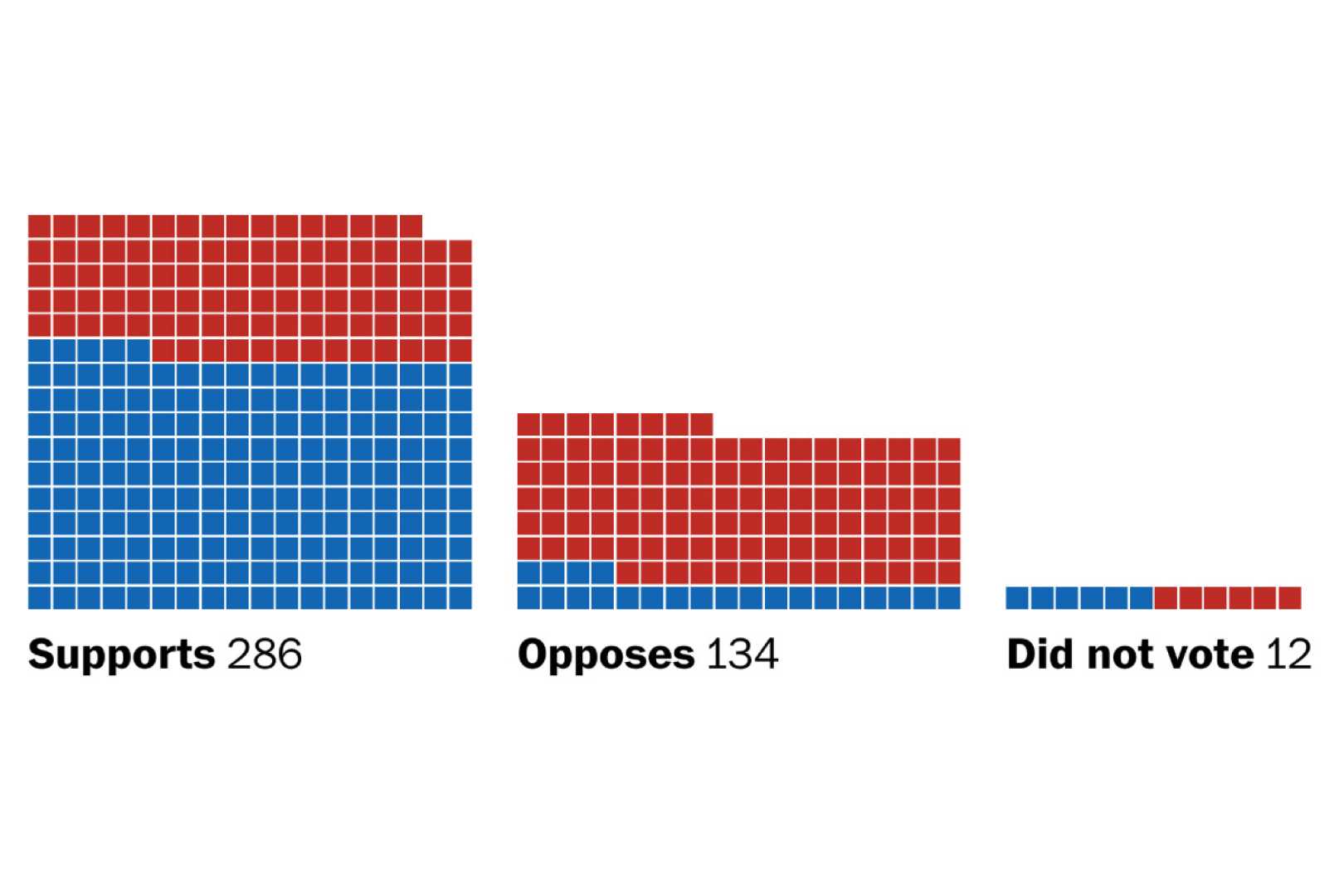Politics
House GOP Faces Internal Struggles Over Budget Vote This Week

WASHINGTON — House Speaker Mike Johnson announced Tuesday that he is moving forward with a planned vote on a multitrillion-dollar budget resolution essential to President Donald Trump’s legislative agenda. However, a faction of conservative Republicans is posing a significant threat to the passage of the measure.
Moderate Republicans have shown signs of support for the budget resolution following discussions with Johnson concerning future Medicaid provisions. Despite this, four outspoken members of the GOP — Representatives Victoria Spartz of Indiana, Tim Burchett of Tennessee, Warren Davidson of Ohio, and Thomas Massie of Kentucky — emerged from a closed-door meeting expressing their intent to vote against the proposal, citing concerns over inadequate spending cuts.
“I am not voting for this,” Davidson stated as he left the meeting. Burchett added, “I’m still a no,” suggesting that he would welcome a conversation with Trump to relay his concerns about the temporary nature of tax cuts and the national debt implications of the proposed budget.
The GOP holds a slim 218-215 majority in the House, meaning Johnson can only afford one defection among Republicans unless there are unexpected absences. Johnson optimistically expressed his intention when addressing reporters earlier on Monday, underscoring the need for prayers to ensure the resolution passes.
Johnson indicated that a vote could occur as early as Tuesday, thereby granting him additional time to persuade dissenters. “There may be a vote tonight, there may not. Stay tuned,” he said, teasing the timing of the vote.
Some GOP members, like Representative Ralph Norman from South Carolina, believe Trump’s involvement may be crucial in swaying undecided lawmakers. Norman remarked, “I think President Trump may have to get involved — with a slim margin, as he should.”
The proposed procedural vote, set for Tuesday afternoon, is intended to advance the budget resolution and requires a simple majority of the full chamber. If successful, a final vote is anticipated later in the evening.
Should the House approve the budget resolution and the Senate follows suit, it will not finalize the legislative process but instead directs committees to formulate a massive party-line spending bill that could be expedited for floor votes, circumventing the Senate’s 60-vote filibuster requirement.
This budget is designed to achieve $2 trillion in spending cuts and includes over $100 billion earmarked for immigration enforcement and military funding. Additionally, it mandates the House Energy and Commerce Committee to identify $880 billion in reductions to federal programs. Republicans have suggested that significant portions of these cuts will impact Medicaid.
Democratic leaders, meanwhile, are rallying against the GOP budget resolution, labeling it a tax cut for the wealthy that would harm working-class families reliant on Medicaid. Their strategy aims to create a divide between Trump and both swing voters and his base, many of whom rely on federal assistance.
Democrats are voicing concerns about potential Medicaid cuts, which could have serious effects on constituents. Representative Nicole Malliotakis, a Republican from New York, acknowledged on NBC News’ “Meet the Press NOW” that while she agrees on implementing work requirements for Medicaid benefits, she opposes cuts that would diminish hospital reimbursements.
Representative Juan Ciscomani from Arizona, after discussing Medicaid concerns with Johnson, noted a slight optimism about the budget and expressed plans to join fellow Republicans at the White House later today.
The chair of the House’s tax-writing Ways and Means Committee, Representative Jason Smith of Missouri, told NBC News that if the budget measure fails, there is no backup plan to extend Trump’s tax cuts. “In order for us to start the process, we have to get a budget resolution,” he said.
As the atmosphere grows increasingly tense, House Republicans face the pressure of reconciling internal divisions before moving forward with major budgetary decisions.












